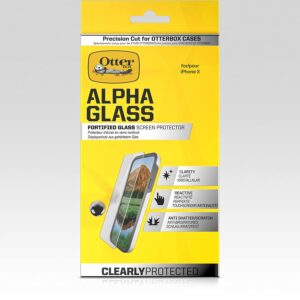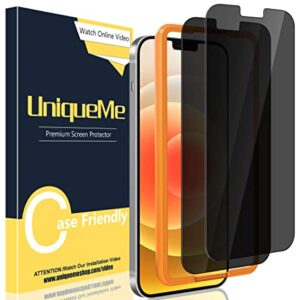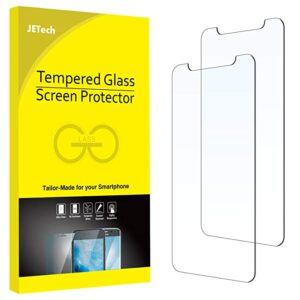End-to-end encryption, two-factor authentication, and a solid VPN can all assist to keep you safe while you’re online. However, something as simple as a sidelong glance might result in the most serious breach of privacy. Everything you need to know about privacy screen protectors may be found right here!
What Is A Privacy Screen Protector?
A privacy screen protector is a cover that fits over the screen of your smartphone, tablet, or laptop and decreases the angle at which people can see what’s going on on your screen using modern technology. In order to obtain relevant information, a spectator would now have to stare directly at your screen to see what is on it. Micro-louver technology is used by the majority of privacy screen protectors to direct light as needed to keep your screen hidden.
Others use tempered glass as a protective screen, which also protects the display of your phone. They function in a truly fantastic way, and they’ll keep prying eyes out of your view.
If you’re browsing on a public, unsecured network, a privacy screen protector is a must, as these are the most common sites where identity theft and other forms of hacking occur.
Read more: 4 Key Benefits of a Timesheet App over Manual Processes
What You Should Know About Screen Protectors For Privacy?
When you hear the term cybersecurity, you might conjure up images of intricate defenses against hackers and phishing. However, obtaining top device security also entails paying attention to smaller details, like who is looking at your screen when you’re using it.
This is where screen protectors for privacy come in handy. You’ve probably heard about screen protectors and how they may help preserve your device’s screen scratch-free and, in certain cases, even minimize breaking.
A privacy armor screen protector does more than that; it also protects your data from prying eyes. What exactly does it do to do this? It comes with an extra layer that restricts the angle from which you may view what’s on the device’s screen. This implies that while you can see everything when staring at it straight on, someone sitting next to you won’t be able to. While many individuals are unconcerned about someone seeing into their phones, these screen protectors are absolutely worth considering.
We live in an information age, where someone can easily find out who you work for, what routes you travel, where you dine, shop, and bank, and so on, just by looking at your computer screen. Someone looking at your phone screen in the hopes of gaining a username and password to a banking/wallet app or some other sensitive account isn’t out of the question. You also don’t know whether it’s premeditated or random, so even if you think it’s unnecessary, it’s probably best to obtain one.
Do You Require The Use Of A Privacy Screen Protector?
We considered two instances when attempting to describe what a privacy screen protector is:
- You’re chatting with your friends on your phone in a public place.
- You’re using it for work, and you may be exchanging material that isn’t meant for public consumption.
Both cases involve the exchange of sensitive and personal information. You probably don’t want your bank account information or confidential work papers to be seen!
As a result, using a screen protector to protect your private discussions and sensitive information is recommended.
In addition, the tempered glass protector guards your screen against accidental drops and dings. So, if you want to keep your business dealings private while also protecting your phone, a screen protector is required!
Working Of Privacy Screen Protectors
Screen privacy screens might be compared to traditional window shades. Except that the blinds are set to a narrow front angle, allowing you to see everything well while obscuring the content of your screen for anyone sitting next to you. Only a darkened/blackened screen is visible to them. To put it another way, you get to decide what the rest of the world sees.
Strangers won’t be able to view what’s on your phone or tablet if you use privacy filters. They’re also compatible with laptops, so you can work on your computer wherever without having to think about anything else. This is especially beneficial if you’re working on public transportation and need to handle important documents or emails. Or perhaps you simply want to surf your smartphone in privacy.
Read more: TikTok Introduces Eight New Livestreaming Features
Privacy Protection For All Devices
You may not want the person at the next desk to see information that he or she does not have access to, or you may just want to keep what you’re working on a secret if you use a laptop – whether at work, at home, or at a public Wi-Fi hotspot – and access personal or sensitive information.
List Of 5 Privacy Screen Protectors For Iphones And Android Smartphones
1. Otterbox AlphaGlass

For maximum protection, this screen protector is comprised of anti-scratch and anti-shatter glass. A microfiber cleaning cloth, squeegee card, dust-removal sticker, and installation instructions are included with the protector. It also works with a variety of Otterbox cases and is specifically built for Google Pixel 4 phones. Also known as bodyguardz screen protector.
2. Spigen AlignMaster Tempered Glass Screen Protector

The Spigen AlignMaster screen protector’s installer is a standout feature since it assists you in correctly aligning the protector during installation. The best tempered glass screen protector is durable and compatible with a wide range of Spigen phone cases. The protector, however, does not provide camera or privacy protection, and it is only compatible with the iPhone glass protector XR and privacy screen protector iPhone 11.
3. ZAGG InvisibleShield Ultra Vision Guard Film

The ZAGG InvisibleShield smart film is a good option if you want an easy-to-install cell phone screen protector. The film adheres to your screen using a wet-install method and provides long-lasting protection. A protective eye-safe layer filters dangerous blue light, and self-healing nano memory technology cures minor scratches and dents on the screen protector. The protection works with any phone case and is perfect for Samsung galaxy note 10 screen protector phones.
4. UniqueMe 2 Pack Tempered Glass Privacy Screen Protector

The tinted design of the unique screen protector not only protects your screen from scratches and damage but also secures your privacy. This means that anyone who isn’t directly in front of your phone’s display won’t be able to see it.
For daily fingerprint resistance, an oleophobic coating is featured, as well as an improved design for crystal-clear vision. In addition, the screen protector includes camera lens shields, which you may use to prevent the rear cameras from damage.
The fact that it’s intended for the iPhone 11 Pro, that it’s a little more expensive than other solutions, and that not everyone wants the privacy guard feature are the primary drawbacks of this protector.
5. JETech Screen Protector

The JETech screen protector comes in a three-piece set that includes a guide stick, dust removal stick, cleaning cloth, and installation instructions. Because of its incredibly high toughness, the protection can withstand scratches. It’s also dust-free, fingerprint-resistant, and reasonably priced.
The protector is meant for iPhone privacy screens 6/6s/7/8 and SE 2020, but due to the round edges of these iPhones, it does not cover the entire screen. It also lacks a privacy guard and camera protection. This is the best phone screen protector.
Mechanism of A Privacy Screen Protector
Simply put, it’s a screen protector made of the best glass screen protector. The screen protector’s glass surface stops anyone staring at the screen from watching screen activity from an angle—the snooper simply sees a blank screen! Privacy screen protectors also offer further use. Tempered glass is used to create a privacy screen protector. To put it another way, it can protect the phone screen from bangs and scratches. Overall, a tempered glass screen protector safeguards your phone’s screen and personal information.
What Used In The Production Of Privacy Screen?
Phone privacy screen protectors come in a variety of shapes and sizes, depending on the manufacturer. However, conventional materials such as multiple layers of PET plastic or tempered glass are employed. Tempered glass is a long-lasting substance that resists scratches and breaks. An anti-spy filter lies on top of this layer, which is a thinner layer. It restricts the amount of data that can be shown from various angles on your display.
Advantages
A privacy screen phone protector can also help if your spouse, boyfriend, or roommate is upset that you are on your phone all night. It ensures that they are not bothered by the light from your phone and that you can continue to enjoy it without interruption. The privacy screen protector, of course, provides the same benefits as a standard screen protector.
It’s an excellent solution to protect the display from scratches and accidental bumps and drops. Other benefits are frequently manufacturer-specific. Anti-glare coatings, blue light filters, eye strain filters, and oleophobic and hydrophobic coatings to keep the shield free of fingerprints and oil smudges are all available on some screen protectors.
Disadvantages
On paper, privacy screen covers appear to be a good idea. Regrettably, the reality is rather different. Many companies claim that there will be no problems with clarity or brightness, but this isn’t always true. You can solve the problem by increasing the display’s brightness, but this may cause the battery to drain faster. When the phone is turned away, having the brightness too high may limit the effectiveness of the privacy filter.
The requirement to hold the phone in front of you eliminates brief sideways glances at the time or notifications. This is something I do frequently, and if I use a privacy screen protector on my phone, it will take some getting used to. It’s also tough to share something that’s on your screen. To show other people a video or a photo, you’ll need to tilt it in just the proper way. Two-way privacy screens assist by allowing you to view the display in landscape mode without difficulty.
With four-way privacy screen protectors, however, this will not be possible. Finally, the limited viewing angle might not be as restrictive as you think. Anyone standing nearby, like on the subway or on a bus, will be able to peer over their shoulder and receive a clear view of the display, as low as viewing angles of 60 or 90 degrees.
Read more: Best Steps For How To Speed Up Computer Free
A Privacy Screen Protector’s Level Of Security
Micro louver technology is used in some privacy screen protectors, allowing light from the phone display to travel through particular angles instead. An easier way to explain this is to look at how window blinds work at a microscopic level. The anti-spy layer/filter is positioned at a 60 or 90-degree front angle. Anyone looking at your display from a different angle than that will be unable to see anything.
If you use a laptop – whether at work, at home, or at a public Wi-Fi hotspot – and access personal or sensitive information, you may not want the person at the next desk to view information that he or she does not have access to, or you may just want to keep what you’re working on a secret. Privacy screen protectors reduce the viewing angle so that no one standing or sitting next to you can see what’s on your screen.
Privacy screen protectors, like any other screen protector on the market, can be simple to use or can have a few drawbacks, as detailed in the advantages and downsides section below.
Final Thoughts
Some phone users want the ultimate privacy option in the form of privacy screen protectors. However, because they aren’t ideal, you’ll have to get used to a little decreased visual experience. Some people may find it vital to keep prying eyes away in public places, in which case a privacy screen protector is a must-have.
It’s best to avoid accessing sensitive information in public if at all possible. Phone and display manufacturers pay millions to provide stunning viewing experiences, and no one wants that to be taken away from them. Privacy, on the other hand, takes precedence over flashy displays. In the end, you’re the best judge of whether or not you’ll need a privacy screen protector.
